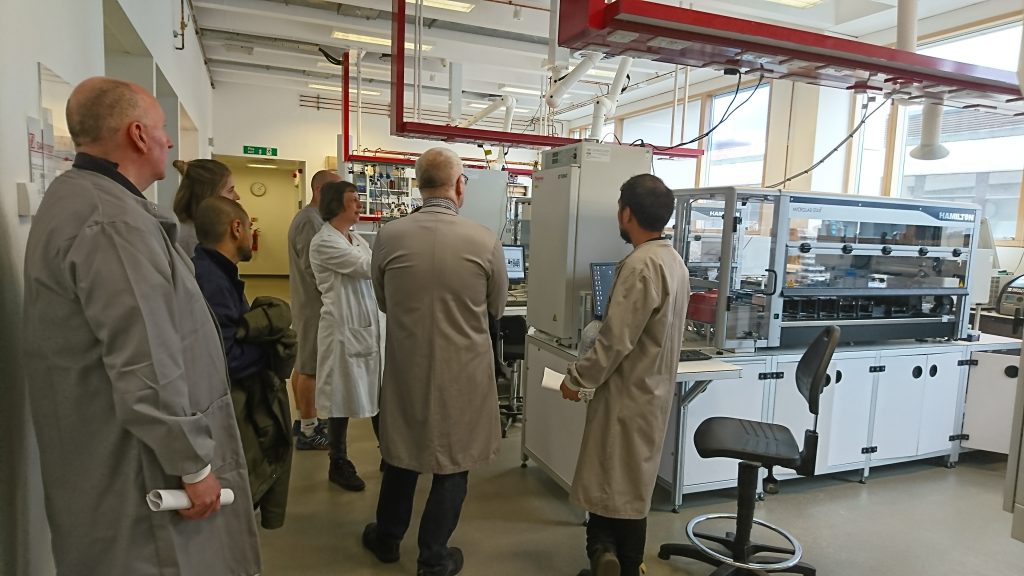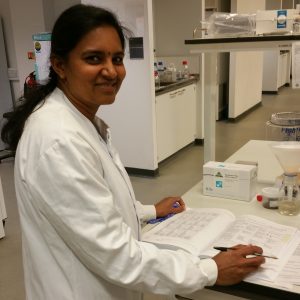 A technician working in the MIB building was recently rewarded by the University’s Thank You scheme for the excellence of her record-keeping, and its impact on a patent application. Anu Balasundaram works for Professor Clare Mills’ Molecular Allergology group, preparing and analysing ‘challenge meals’ for their commercial partner, Reacta Biotech. Challenge meals are foods containing precise quantities of a known food allergen, e.g. peanut protein, or a placebo. When administered to people with food allergies in a double blind placebo-controlled food challenge under medical supervision, they can be used to give an accurate food allergy diagnosis.
A technician working in the MIB building was recently rewarded by the University’s Thank You scheme for the excellence of her record-keeping, and its impact on a patent application. Anu Balasundaram works for Professor Clare Mills’ Molecular Allergology group, preparing and analysing ‘challenge meals’ for their commercial partner, Reacta Biotech. Challenge meals are foods containing precise quantities of a known food allergen, e.g. peanut protein, or a placebo. When administered to people with food allergies in a double blind placebo-controlled food challenge under medical supervision, they can be used to give an accurate food allergy diagnosis.
Reacta Biotech are in the process of applying for a patent in this area and leaned heavily on Anu’s lab book to provide evidence to support the application. Dr. Martin Wickham, Reacta’s Commercialisation Manager wrote that Anu’s lab book record “provided us with exactly the evidence required, and therefore made my job of progressing the patent, really easy.” He went on to say “I genuinely do not know what we would have done without the laboratory records” and praised their clarity and the speed with which she was able to produce them.
Anu’s supervisor, Professor Clare Mills, said “A good lab book is vital for substantiating data and conclusions made in papers, and also in identifying and protecting intellectual property… Her exemplary lab book, with experiments clearly described, dated and signed off, has been essential in providing documentary evidence to the patent examiner.”
As part of its commitment to recognising its staff’s achievements, the University rewarded Anu with some gift vouchers under its Thank You Scheme. Her line manager, Geoff Blunt, said “It’s so great to see Anu’s hard work and attention to detail being acknowledged and celebrated; it shows her work has real impact and she performs a vital role for the University and its partners.”
For more information on the University’s Thank You Scheme, and how you can request a card or present for a member of staff who should be acknowledged, please click here.

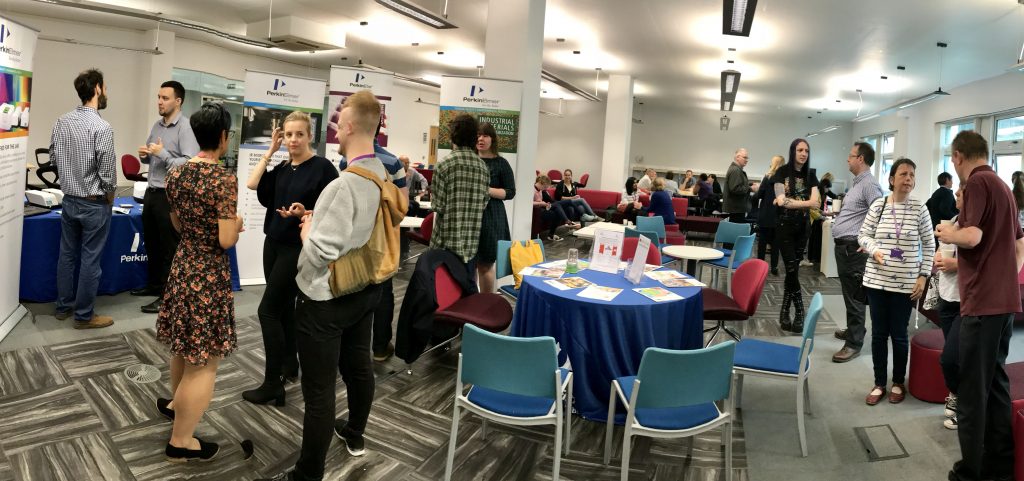
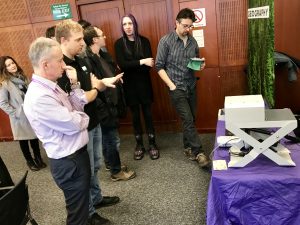 On 17th January, TEaM held one of its quarterly coffee & networking events, this time with a stall from the School of Geography, following on from feedback that these events could be improved by adding some technical focus.
On 17th January, TEaM held one of its quarterly coffee & networking events, this time with a stall from the School of Geography, following on from feedback that these events could be improved by adding some technical focus.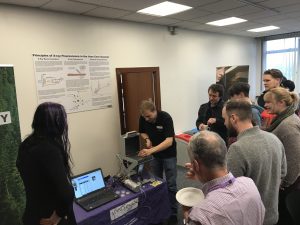
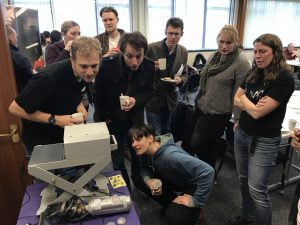
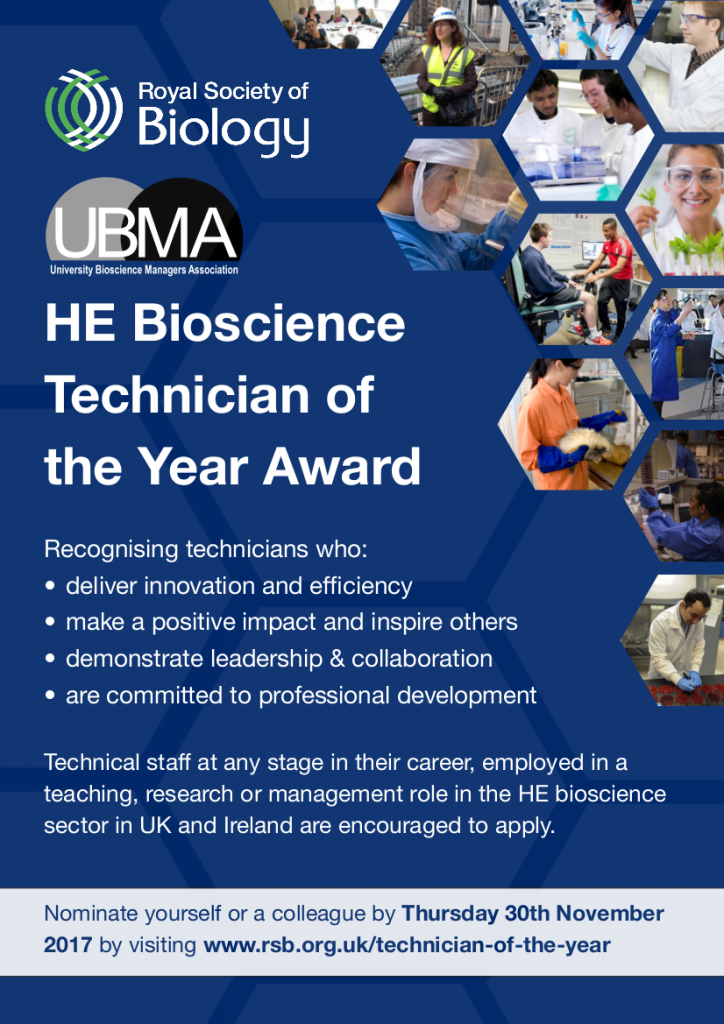
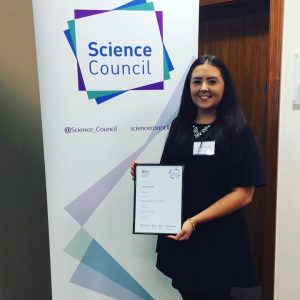 Laura Farrell, a technician at the University of Manchester’s Stoller Biomarker Discovery Centre, has won an award for her continuing professional development from the Science Council, an umbrella body that administers professional technical registration across all disciplines nationwide.
Laura Farrell, a technician at the University of Manchester’s Stoller Biomarker Discovery Centre, has won an award for her continuing professional development from the Science Council, an umbrella body that administers professional technical registration across all disciplines nationwide.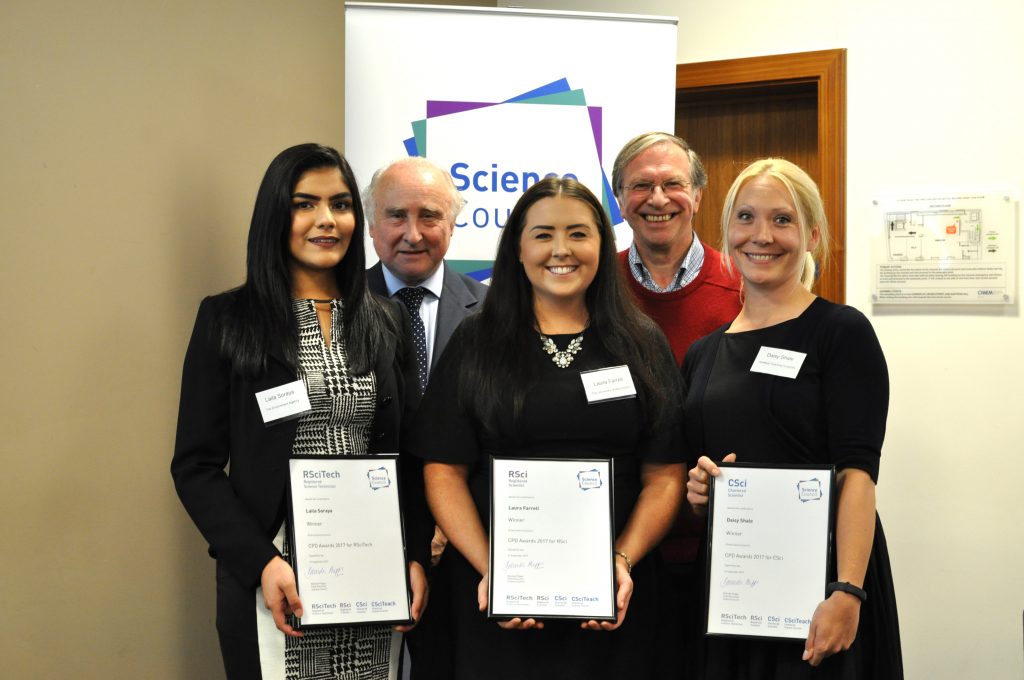
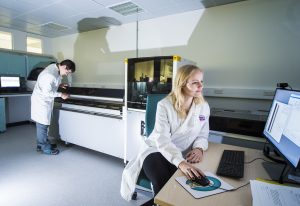 Follow us on Twitter! Our account will tweet out whenever a new blog article is posted
Follow us on Twitter! Our account will tweet out whenever a new blog article is posted 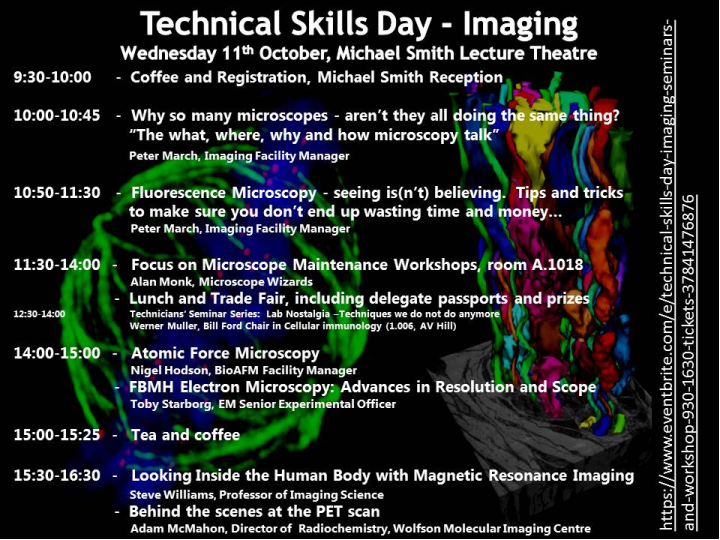
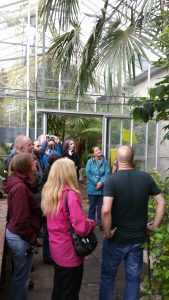
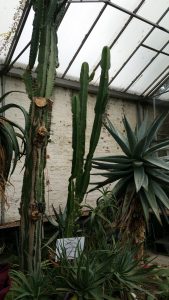 The Firs Botanical Grounds are tucked away between Owens Park and the Armitage Sports Centre in Fallowfield, on land that previously formed part of Joseph Whitworth’s estate – the house of the estate is now known as Chancellors, but Whitworth had a long brick firing range on the grounds, and part of this was converted into greenhouses. Further greenhouses have since been built on the site, as well as a specialist section for mosses and ferns.
The Firs Botanical Grounds are tucked away between Owens Park and the Armitage Sports Centre in Fallowfield, on land that previously formed part of Joseph Whitworth’s estate – the house of the estate is now known as Chancellors, but Whitworth had a long brick firing range on the grounds, and part of this was converted into greenhouses. Further greenhouses have since been built on the site, as well as a specialist section for mosses and ferns.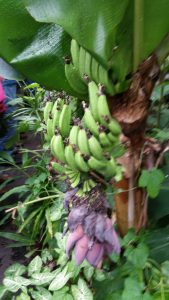
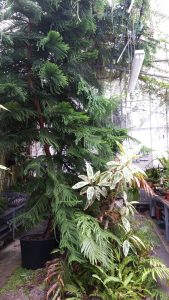 Through a programme of plant exchange with other institutions and with the various volunteer groups that help maintain the Firs, the range of plants housed there has been increased over the years. Banana plants, ginger, tea and coffee grew next door to giant (and toxic) euphorbia cacti and delicate Norfolk Island pines.
Through a programme of plant exchange with other institutions and with the various volunteer groups that help maintain the Firs, the range of plants housed there has been increased over the years. Banana plants, ginger, tea and coffee grew next door to giant (and toxic) euphorbia cacti and delicate Norfolk Island pines.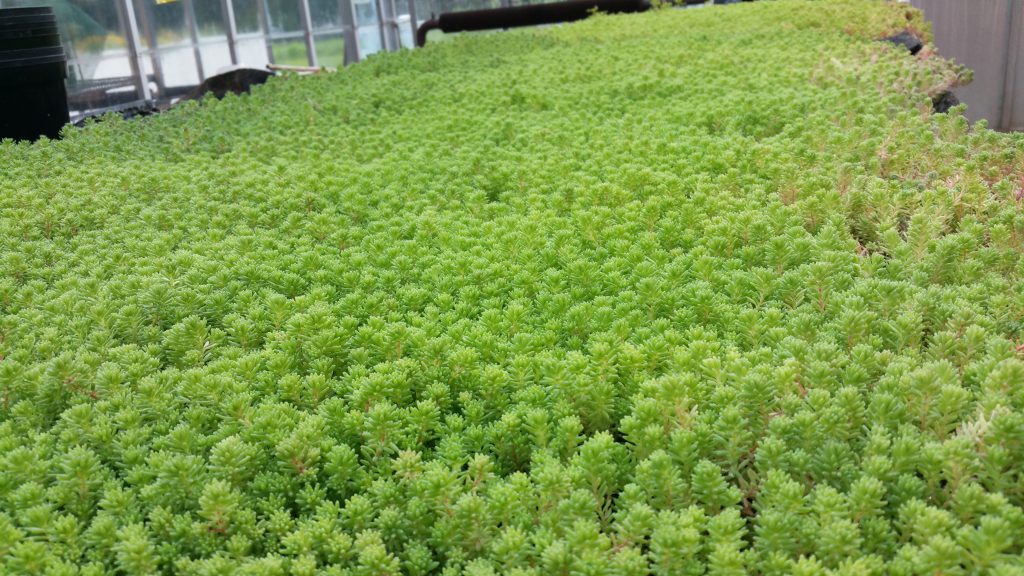
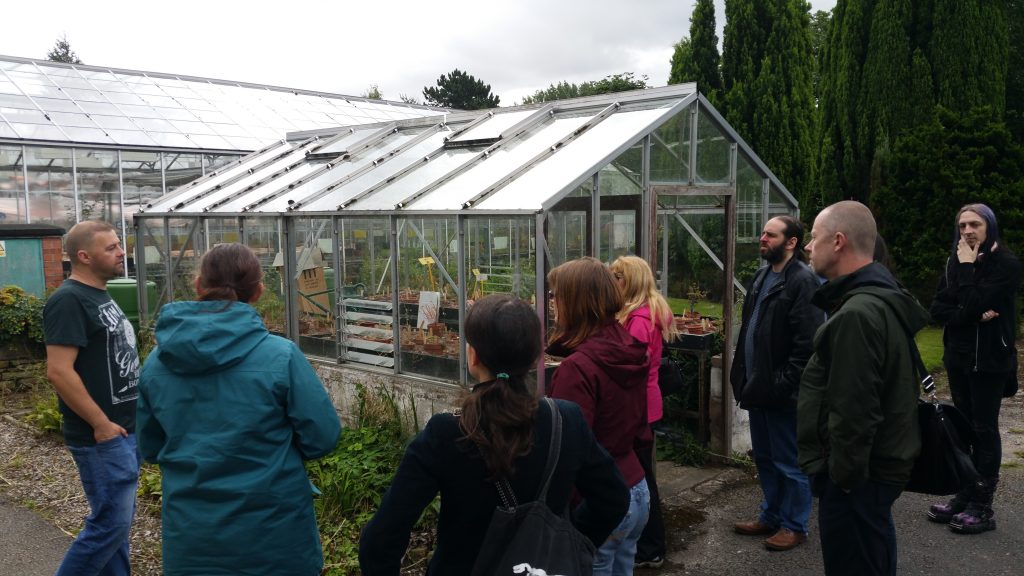
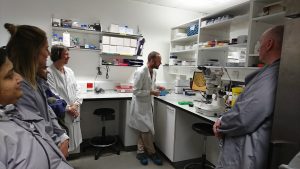 In early June, Sandra Taylor led three tours of the Manchester Institute of Biotechnology, on Sackville Street. MIB is a largely research driven environment with mostly Masters or Postgrad level students and research staff. There is a small core of technical staff underpinning the work and the running of the building. The groups are by design multidisciplinary and have a range of core facilities to support their research themes: Industrial Biotechnology, Biomedical and Healthcare (such as drug production), Biofuels and Synthetic Biology.
In early June, Sandra Taylor led three tours of the Manchester Institute of Biotechnology, on Sackville Street. MIB is a largely research driven environment with mostly Masters or Postgrad level students and research staff. There is a small core of technical staff underpinning the work and the running of the building. The groups are by design multidisciplinary and have a range of core facilities to support their research themes: Industrial Biotechnology, Biomedical and Healthcare (such as drug production), Biofuels and Synthetic Biology.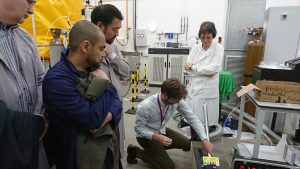 were shown a selection of the Bionanotechnology, Biophysics, EPR, Mass spectrometry, NMR, Protein expression, Protein structure and Transcriptomics core facilities, each of which is administered by their own Experimental Officer. Further detailed information on these core facilities can be found
were shown a selection of the Bionanotechnology, Biophysics, EPR, Mass spectrometry, NMR, Protein expression, Protein structure and Transcriptomics core facilities, each of which is administered by their own Experimental Officer. Further detailed information on these core facilities can be found 